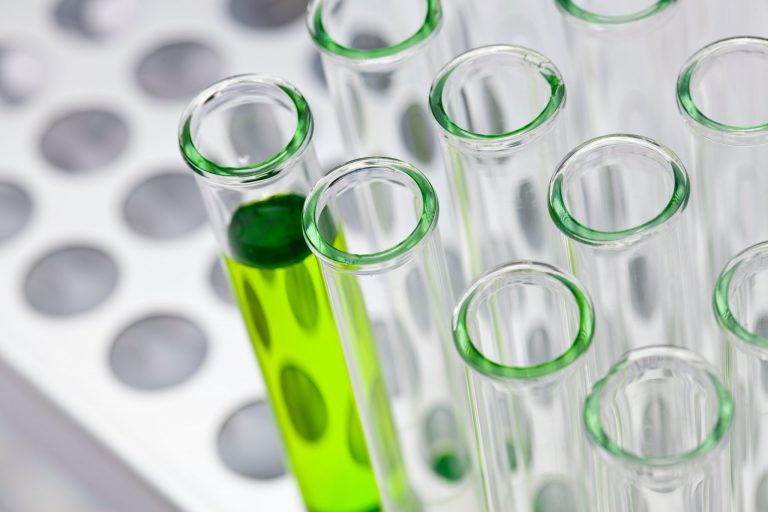Dear friends, dear interested,
This is really good news for our health. In response to a written question (see below) from my colleague Jutta Paulus and me, the EU Commission has now set a deadline: The so-called forever chemicals from the PFAS group (per- and polyfluoroalkyl substances) will be banned. In fire-fighting foams already in October 2021, and for all other uses in 2022.
The Commission is thus implementing a demand made by many environmental associations, experts and us Greens. It is important that the more than 4700 PFAS compounds are not banned individually, as has been the rule so far, but as a group. This group approach is central to chemicals regulation, so that manufacturers cannot simply switch to chemically similar compounds that are not yet regulated (best negative example: Bisphenol A).
PFASs are a particularly nasty class of substances. They are extremely stable (hence the nickname “forever chemicals”) and at the same time spread very easily. As a result, they contaminate air, water and soil quickly and over the long term. PFASs are associated with diseases of the endocrine system, reproductive organs and immune system, as well as cancer.
A survey in six European countries (Denmark, France, Germany, the Czech Republic, the Netherlands and the United Kingdom) found PFASs in the majority of disposable food packaging and tableware made of paper, cardboard and moulded fibres tested. Of the 42 samples, 76% showed intentional treatment with PFASs, with traces found in all samples. Due to the effect on the endocrine system and the extreme longevity, even the smallest amounts are of concern.
In response to our question, the EU Commission also promises that paper, cardboard and other moulded fibres will finally be included in the EU regulation on food contact materials. This closes a gaping loophole, because unlike plastic tableware and packaging, the ingredients of tableware and packaging made of paper and cardboard have not been regulated as strictly so far.
This really good news is also thanks to the persistent work of environmental and health protection associations and chemical experts who have not let up. In the European election campaign, us Greens also put the issue of healthy and sustainable chemistry at the forefront and were able to put pressure on the Commission with the strong Green result in the European elections.
Many chemical companies are already on their way or in the starting blocks towards a clean and sustainable chemical industry. With strong rules we support these innovative companies and create security for long-term investment planning. Together with my colleague Jutta Paulus, I will keep a close eye on exactly which regulations the Commission will be putting forward, also to prevent any watering-down at the last moment. We will remain vigilant!
Thank you very much for your support,
With pleased European greetings,
Sven Giegold
P.S.: TODAY – Webinar Europe Calling ‘Powerless against the floods? How can we protect ourselves from disasters in Europe?” – with renowned European flood researcher Prof. Hannah Cloke, Green state parliamentary group leader Verena Schäffer and Green Party Vice-President Oliver Krischer. On Wednesday, 4.8.2021 at 20:00. Be there and join the discussion! Register right here!
—
Question for written answer to the Commission
Jutta Paulus (Verts/ALE), Sven Giegold (Verts/ALE)
A survey conducted in six European Countries (Denmark, France, Germany, Czechia, the Netherlands and the UK) found the widespread presence of per- and polyfluoroalkyl substances (PFAS) in popular disposable food packaging and tableware made of paper, board and moulded fibre (these materials are not covered by the EU Regulation on Food Contact Materials).
Per- and polyfluorinated compounds (PFAS) are highly persistent and mobile and contaminate air, water and soil. They have been associated with disorders of the reproductive, endocrine and immune systems as well as cancer.
Out of the 42 samples, 76 % showed intentional treatment with PFAS, while traces were found in all of them. 99 % of the organic fluorine present in selected samples could not be captured by the laboratory’s compound-specific analysis of 55 PFAS, which means that identifying the PFAS substances present with certainty was impossible.
- What does the Commission intend to do to avoid PFAS contamination of food and the materials and items coming into contact with it?
- When will it include paper, board and moulded fibre in the scope of the EU Regulation on Food Contact Materials?
- When will it make public the group approach on PFAS as promised in the Chemicals Strategy for Sustainability?
—
Answer given by Ms Kyriakides (Commissioner for Health) on behalf of the European Commission (4.8.2021)
- The Commission is currently following up on a recent European Food Safety Authority (EFSA) opinion that indicates a need to address certain per- and polyfluoroalkyl substances (PFAS) in food. Risk management measures will include setting maximum levels under the legislation concerning contaminants in food in order to ensure consumer protection. This is outlined in the Chemicals Strategy for Sustainability (CSS). PFAS may be used in the manufacture of food contact materials (FCMs), including coated paper and board and other fibrous materials. Business operators are legally obliged to ensure that FCMs do not transfer their constituents to food in amounts hazardous to human health in accordance with Regulation (EC) No 1935/2004.
- The Commission is currently revising the FCM legislation. As part of the revision, the Commission will consider all types of FCMs, including paper, board and moulded fibre, and ensure greater coherence with other relevant legislation, including the Regulation for the Registration, Evaluation, Authorisation and Restriction of Chemicals (REACH).
- In the CSS, the Commission committed to ban PFAS as a group in fire-fighting foams and in other uses, allowing their use only where they are essential for society. The definition of the PFAS group will be included in the restriction dossiers (expected in October 2021 for fire-fighting foams and in 2022 for all the other uses).

